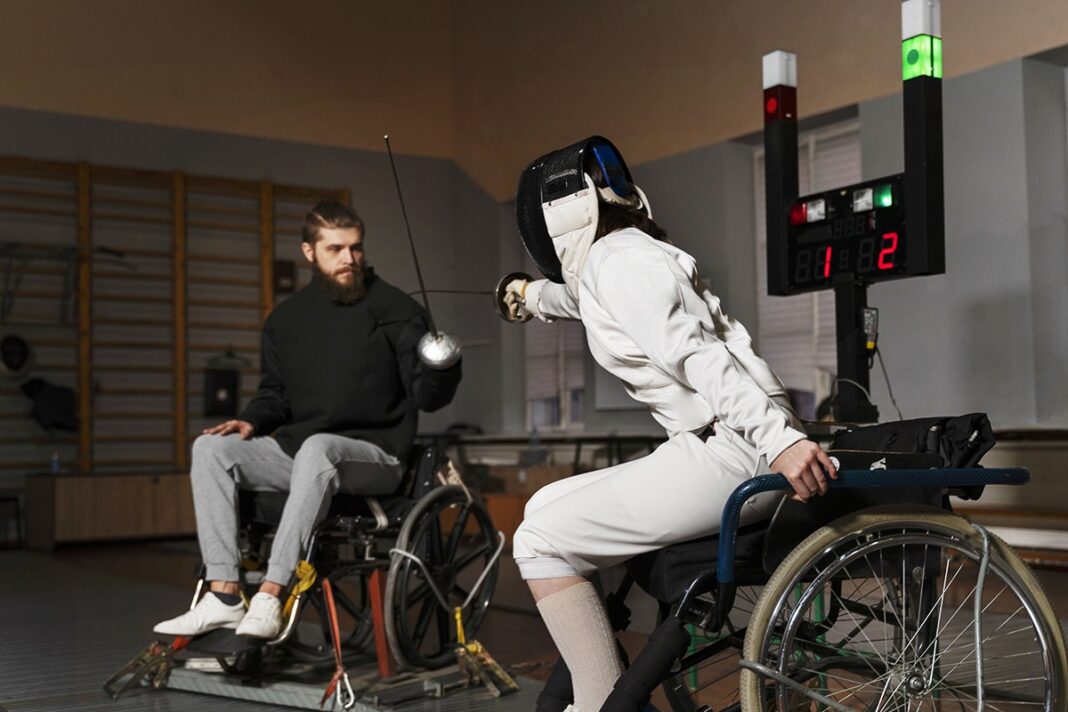The Importance of Sports for People with Disabilities in Promoting Inclusion
People with disabilities have often been left out of opportunities many take for granted such as employment, education, and sports. However, sports for people with disabilities have become increasingly popular over the years, and while it is a welcome development, it is more than just a recreational activity. Sports play a crucial role in building the self-esteem, confidence, and physical fitness of people with disabilities. Moreover, sports for people with disabilities create a level playing field and instill a sense of inclusion, breaking down physical and social barriers.
Sports as an Essential Part of Life for People with Disabilities
For people with disabilities, sports are more than just a recreational activity. It provides the opportunity to engage with others and develop essential skills required to succeed in other areas of life. Sports promote teamwork and leadership, skills needed in school, work, and daily life. Moreover, participation in sports can improve self-esteem, confidence, and physical fitness, leading to better mental well-being and a perception of self-worth.
For people with physical disabilities, participating in sports presents new challenges, both mental and physical. Despite the difficulties, it promotes new skills and is an excellent way to build resilience and perseverance. For instance, wheelchair basketball and wheelchair rugby require a level of athleticism and mental focus similar to their traditional counterparts. Engaging in sports can help to develop new skills, enhancing self-exploration and growth.
Breaking Down Barriers and Fostering Inclusion
Sports provide a powerful tool for breaking down the physical accessibility barriers that exist for people with disabilities. For example, disability-friendly facilities and special equipment such as wheelchair lifts, ramps, and adaptive equipment can make sports arenas and facilities accessible and inclusive for people with disabilities. Additionally, sports offer an opportunity to address social barriers such as negative stereotypes, discrimination, and social exclusion.
Sporting events and competitions provide an excellent opportunity for people with disabilities to come together and compete on a level playing field. Participation in sports can help people with disabilities gain confidence and self-esteem, develop leadership and teamwork skills, and ultimately lead a more fulfilling life.
Challenges in Promoting Sports for People with Disabilities
Despite the numerous benefits associated with sports for people with disabilities, there are some challenges that need to be addressed. One of the most significant challenges is the lack of access to sporting facilities. In many cases, facilities are not adequately equipped for people with disabilities, resulting in limited access or the inability to participate in specific sports.
Another significant challenge is the lack of awareness and opportunities for people with disabilities to engage in sports. In some cases, people with disabilities may not know about sports available to them or may not have access to the resources that would enable them to participate. This lack of awareness and access to opportunities can lead to social isolation and, ultimately, a diminished sense of self-worth.
Promoting Inclusiveness
In order to address the challenges associated with creating inclusive sports activities and facilities, several steps can be taken. The first step is to ensure that sporting facilities are accessible and accommodating to people with disabilities. This requires the installation of adaptive and mobility equipment such as ramps and lifts, as well as the training of staff members in working with people with disabilities.
Secondly, there needs to be an increased awareness and promotion of sports activities for people with disabilities. This can be achieved through the use of advertisements and social media platforms, as well as the organization of events and competitions that cater to people with disabilities.
Thirdly, there needs to be greater collaboration between organizations that promote sports for people with disabilities and other disability advocacy groups. Collaboration can lead to the formation of partnerships that result in increased resources and representation, leading to further social and political changes regarding disability rights.
Conclusion
In the end, sports for people with disabilities are much more than a recreational activity. It promotes inclusiveness and enables people with disabilities to develop essential skills and confidence needed in daily life. It is a powerful tool for breaking down physical and social barriers and creating a level playing field for everyone, regardless of physical ability. While there are challenges associated with making sports inclusive, they can be addressed through awareness, access to opportunities, training, and collaboration. Therefore, greater steps need to be taken to promote the inclusion of people with disabilities in sports activities, leading to a more fulfilling and happier life for all.
- Age is just a number: Embrace the Benefits of Sports for Seniors - 28 de mayo de 2023
- Breaking Barriers: Why Sports for People with Disabilities is Essential for Personal Growth and Inclusion - 28 de mayo de 2023
- Breaking Barriers: Why Sports for People with Disabilities is an Essential Part of Inclusion - 27 de mayo de 2023


